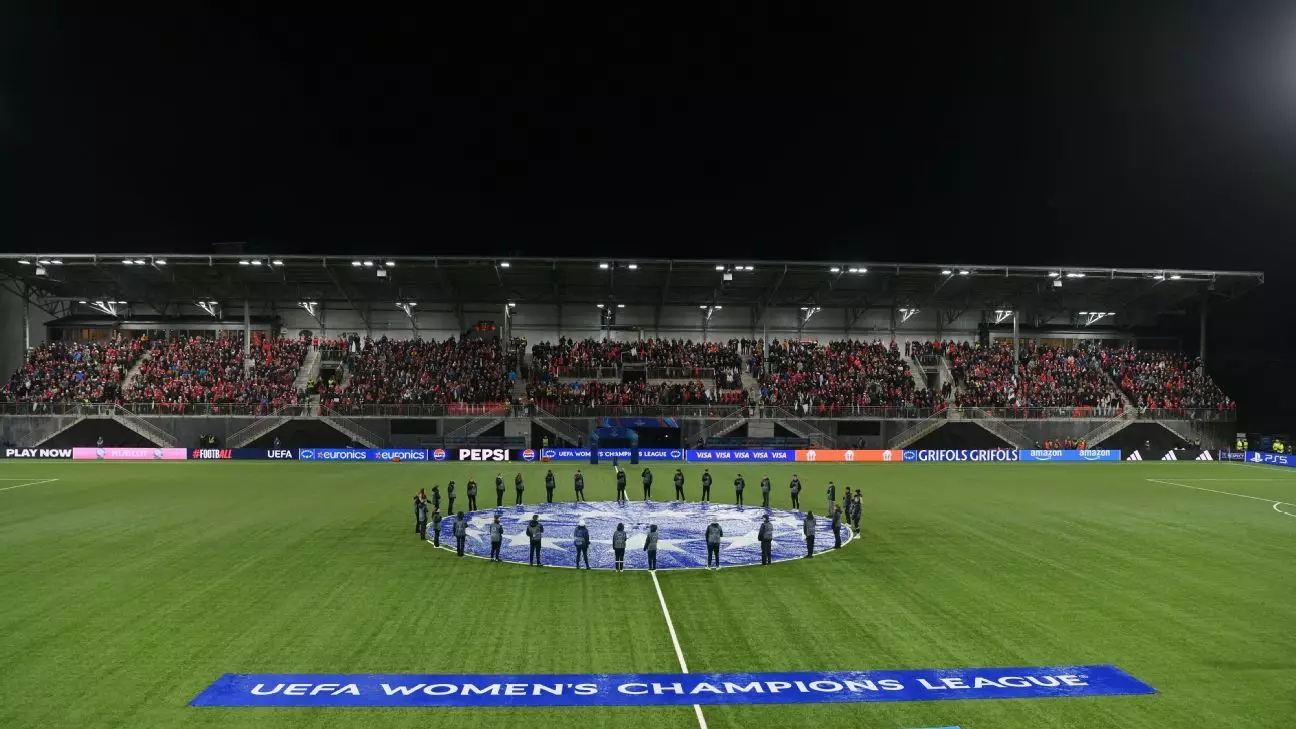In a bold move that reverberated throughout European football, Norwegian club SK Brann has successfully challenged UEFA’s disciplinary measures regarding freedom of expression. Initially fined €5,000 for fans chanting “UEFA Mafia” during a Women’s Champions League match, the club took the issue to the Court of Arbitration for Sport (CAS). The recent ruling from CAS not only absolved Brann of the fine but also underscored the importance of free speech in sports—a sentiment that resonates beyond the football pitch.
Challenging Authority and Defending Ideals
At the heart of the issue lies a critique of UEFA’s governance and its stringent regulations that some fans view as overreaching. The term “UEFA Mafia” was employed as a satirical jab at the organization, portraying it as an elite entity with considerable control over football in Europe. The CAS ruling echoed this sentiment, noting that such expressions should be seen through the lens of fundamental human rights. For Brann, this victory is not merely about the financial penalty; it’s about defending the principles of free speech and allowing fans to express their dissent against what they perceive as an insular governing body.
The Broader Implications of the Ruling
Brann president Aslak Sverdrup celebrated the decision as a monumental moment for the club and, by extension, for free speech in sport. His assertion that “it is not every day a club from Norway moves all of football Europe” speaks to a larger narrative about the power dynamics at play in European football. This ruling could serve as a precedent, empowering clubs and fans alike to voice their concerns without fear of retribution from authoritative bodies like UEFA.
However, the ruling also raises questions about the extent to which UEFA can regulate fan behavior. While the organization claims that maintaining public safety and preventing disorder is paramount, one must ask whether a fine for fans expressing political satire compromises this mission. This tension illustrates the ongoing struggle between maintaining order and allowing for genuine expression among supporters.
UEFA’s Stance: A Contradictory Position
Following the CAS decision, UEFA expressed its disagreement, emphasizing that freedom of speech does not extend to offensive or provocative language. This statement strikes a contradictory tone for an organization that has often faced criticisms for its heavy-handed approach to fan conduct. UEFA’s insistence on asserting its regulatory interest could be viewed as an attempt to curtail dissent, thereby undermining the very fabric of what makes football a beloved sport—its passionate and sometimes contentious fan base.
The CAS ruling sends a clear message that while regulatory bodies hold power, the voices of fans cannot be easily silenced. As Brann receives the necessary financial support to cover legal costs, this saga raises awareness of the necessity for dialogue regarding the balance between governance and freedom of expression in professional sports. The match between authority and the supporters’ voice is far from over, and it remains to be seen how UEFA and other governing bodies will respond in the wake of this critical challenge to their authority.

